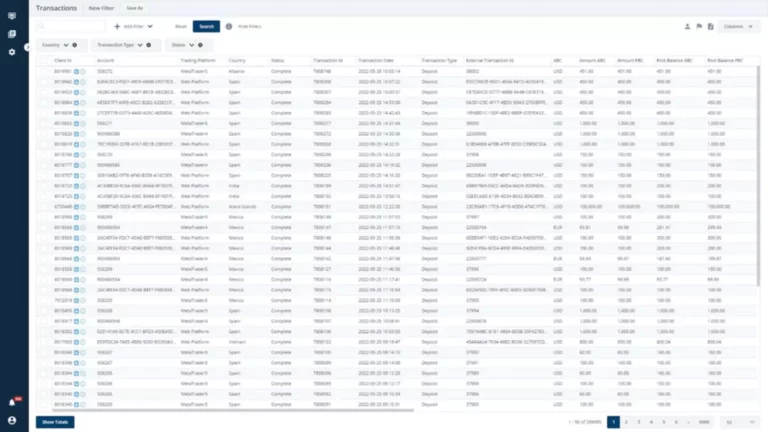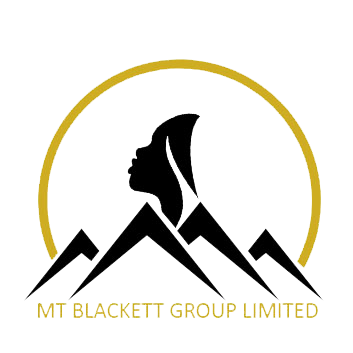The Good, The Bad & The Ugly of Payment for Order Flow
Content
The changes required brokers to disclose the net payments received each month from market makers for equity and options trades. Brokers must also reveal their PFOF per 100 shares by order type (market, marketable-limit, nonmarketable-limit, and other orders). The rise of low- or no-commission trading took off after Robinhood Markets (HOOD), the low-commission online brokerage, began offering such pfof meaning services in 2013.

SEC Examination Priorities Provide a Roadmap for 2025 Compliance

This material is not intended as a recommendation, offer, or solicitation to purchase or sell securities, open a brokerage account, or engage in any investment strategy. Options.Options trading entails significant risk and is not suitable for all investors. Options investors can rapidly lose the value of their investment in a short period of time and incur permanent loss by expiration date. Investors must read and understand the Characteristics and Risks of Standardized Options https://www.xcritical.com/ before considering any options transaction.
Want to invest without having to worry about payment for order flow?
Funds in your High-Yield Cash Account are automatically deposited into partner banks (“Partner Banks”), where that cash earns interest and is eligible for FDIC insurance. Your Annual Percentage Yield is variable and may change at the discretion of the Partner Banks or Public Investing. Apex Clearing and Public Investing receive administrative fees for operating this program, which reduce the amount of interest paid on swept cash.
Who is affected by the PFOF ban?
When CMS broker incentives or payments are received for routing customers’ orders to a specific broker or counterparty, it creates the possibility of broker decisions becoming personally influenced. Brokers may be tempted to route orders for reasons of personal financial gain. This situation is in direct conflict with the broker’s best execution obligation, which seeks to drive optimal outcomes for the customer. Under the ban, brokers will no longer be able to receive those kickbacks for directing investors’ trades towards a particular market maker. Article 27 sets out best execution requirements for investment firms when filling client orders.

Note that, during the Feb. 18, 2021 hearing, Griffin, Tenev, and the committee members made references simply to “Citadel,” without clarifying that Citadel Securities is the corporate entity with the market maker relationship to Robinhood. Citadel Securities is a separate corporate entity from hedge fund Citadel LLC, though with the same business address and same corporate parent, Citadel Enterprises Americas LLC. The European Parliament has approved the MiFID II and MiFIR revisions including key proposals to establish a consolidated tape in Europe and a ban on payment for order flow (PFOF). Simply having systems in place to monitor potential issues is not enough to fulfil regulatory compliance obligations.
The critics aren’t convinced and point to the clear lack of competition amongst the dominant players, with one wholesaler in particular, handling 25% of US equity transactions. Detractors call for more transparency on best execution to combat the opaque nature of off-exchange trading. The report provides transparency in this area, allowing investors to understand how their orders are routed and executed, and to identify any potential conflicts of interest. Broker-dealers must disclose the nature of any compensation received in return for routing orders, as well as the overall process they use for order routing decisions. By mandating this disclosure, the reports mandated by 606(a) aim to enhance the integrity of the market and protect investor interests.
Therefore, investment firms should select the execution venue or counterparty for the execution of their clients’ transactions exclusively from the perspective of achieving the best possible result for their clients. In the case of receiving kickbacks, there is a risk that these client interests are at least not fully taken into account. It may be taking customer orders and fulfilling them at a certain price better than the NBBO, but immediately going out and executing an offsetting trade by accessing pools of liquidity that are otherwise publicly available. In that instance, the broker could theoretically get customers the best price by going around the market maker and routing trades to multiple exchanges and trading systems to find the truly best price for an order.
- Investments in Bonds are subject to various risks including risks related to interest rates, credit quality, market valuations, liquidity, prepayments, early redemption, corporate events, tax ramifications and other factors.
- Bonds.“Bonds” shall refer to corporate debt securities and U.S. government securities offered on the Public platform through a self-directed brokerage account held at Public Investing and custodied at Apex Clearing.
- It is not intended as a recommendation and does not represent a solicitation or an offer to buy or sell any particular security.
- This process has caused a bit of controversy in recent years, which is why some brokers like Public.com have opted out of the PFOF business model.
- In Austria, there were considerations to issue a corresponding exemption from PFOF following the German example but so far no public announcement has been made.
So, let’s please look at the bigger picture here and make Europe a stronger, more resilient, and competitive market. There’s still so much more to gain by working together and create unity than by going backwards and have a fragmented market. It significantly complicates the approach, it goes against the principles of the CMU, it goes against a level playing field, and it opens the door for all Member States to implement their own rules again. If it helps, we’ll even provide you with an outline of a script to help you support your advocacy. As regards Ireland, Italy, Spain, the Netherlands, France, Luxembourg and Sweden there are currently no intentions to make use of the grandfathering rule and thus, the prohibition of PFOF is being applied immediately. In Austria, there were considerations to issue a corresponding exemption from PFOF following the German example but so far no public announcement has been made.
Do not infer or assume that any securities, sectors or markets described in this article were or will be profitable. Historical or hypothetical performance results are presented for illustrative purposes only. Thats why Public doesnt use PFOF and instead uses tipping to help pay for executing market orders so we can bridge the gap between our brokerage and the investors who we serve.
As the name implies, a market maker will make a market for certain financial instruments. Typically, the market maker will offer a better price than is available on a public exchange. Perhaps the most significant concern with PFOF is the potential conflict of interest. Brokers are incentivized to route orders to the market maker that pays them the most, rather than the one that might provide the best execution for your trade.
Investors use brokerage services to buy or sell stocks, options, and other securities, generally expecting good execution quality and low or no commission fees. While investors don’t directly participate in the arrangement, how well their trade is executed can be affected by it. Under the promotion of zero trading fees, brokers are able to attract retail investors to their products despite the kickbacks they receive from market makers. This ban on kickbacks is based on the principle that investment firms working for their clients should strive to obtain the best possible price and the greatest chance of execution for the transactions they carry out.
Citadel Securities, Susquehanna International Group, Wolverine Capital Partners, Virtu Financial, and Two Sigma are among the largest market makers in the industry. And the top three within that group—namely, Citadel, Susquehanna, and Wolverine—account for more than 70% of execution volume in the markets. These and other market makers use high-frequency algorithms that scan exchanges to compete fiercely for orders.
As such, they are in a position to use the information in the flow to inform their own algorithmic trading decisions, and to trade with very high frequency in the market, much more so than any retail investor could ever. Investors are often unaware that their orders are sold to hedge funds, and of the impact this can have. Some states have laws and ethical rules regarding solicitation and advertisement practices by attorneys and/or other professionals.
Bonds with higher yields or offered by issuers with lower credit ratings generally carry a higher degree of risk. All fixed income securities are subject to price change and availability, and yield is subject to change. Bond ratings, if provided, are third party opinions on the overall bond’s credit worthiness at the time the rating is assigned. Ratings are not recommendations to purchase, hold, or sell securities, and they do not address the market value of securities or their suitability for investment purposes. Lastly, there’s no arguing that payment for order flow results in customers getting better prices than displayed by the NBBO. Theoretically, market makers are offering the best price available for retail investors.
